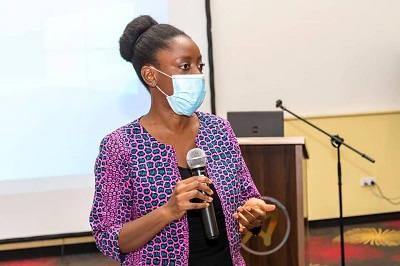
The founder and co-chair of Social Enterprise Ghana (SEG), Madam AmmaLartey, has called for new capital approach for social enterprises to aid them grow their businesses.
She observed that although social enterprises play a key role in the socio-economic development of the country, they are made to pay interest rates which sometimes cripples their activities.
Madam Lartey, therefore, called on the government to introduce the Capitalist Capital Scheme approach with low interest rates, and not just the convection capital which has good returns.
“Currently over 70 per cent of interest rates are charged on Small and Medium-size Enterprises (SMEs). We need proportional refunds so business can be built on models which will transform Ghana. The Capitalist Capital Scheme enables the third party investment which is seven-times the initial investment in the SME which can be a promising key to close the financial companies.”
Addressing participants at the annual Social Enterprise Ghana (SEG) forum under the theme “Partnerships for Sustainable Development: Social Enterprises as catalysts for inclusive growth in Ghana, at the British Council on Friday, MrsLartey highlighted on three keys areas of recommendation to aid the growth of SEG and SMEs.
She called for an increased number in quality technical assistants in a more comprehensive way; that is increasing the quantity of service providers for business.
Also, she said, there should be an increase in capital raised service providers where people can work alongside business and raise money to subsidise some of these services to SMEs, including SEG to have access to.
The founder of SEG added that measures should be in place to ensure affordable currency hedging solutions where businesses would be doing well; but the economic situation will reduce the growth because of a foreign currency domination.
MrIssaOuedraogo, founder of B-BOVID – an agribusiness company, also called on the government to have a legal framework that would enable indigenous social enterprises in the country to be exempted from some taxes.
MrOuedrago observed that with little profit gained, they were made to pay huge taxes which sometimes breaks down their activities.
He, therefore, called on the government to have a second look at taxing social enterprises.
According to MrOuedraogo, Social Enterprises do more work than NGOs, but they pay taxes, like any other business.
He added that three main things namely planet, people, and profit where people at the centre must take care of the environment and also make sure it’s profitable.
The day’s event brought together social entrepreneurs, hub owners, policy makers, researchers and various stakeholders in the social enterprise ecosystem.
Also, it provided an avenue for entrepreneurs to share their experiences on how their business had grown over the years and the challenges encountered along the way.
BY LINUS SIAW NARTEY







